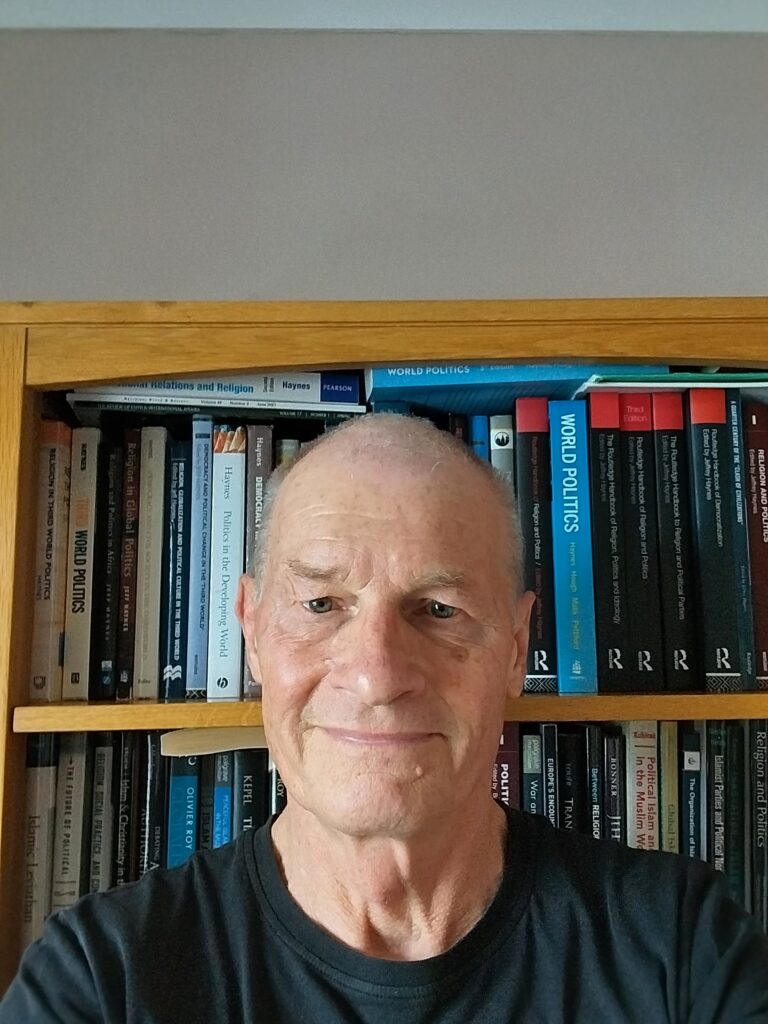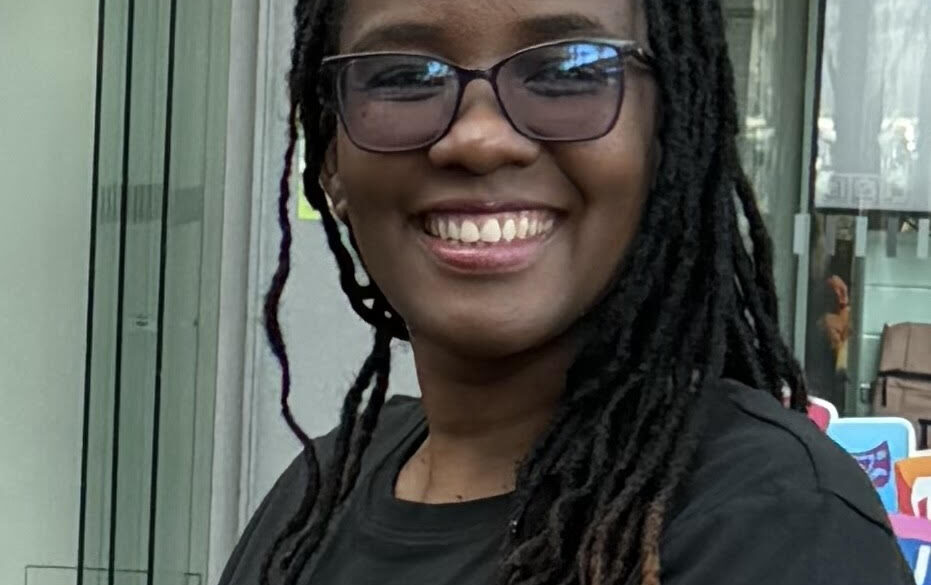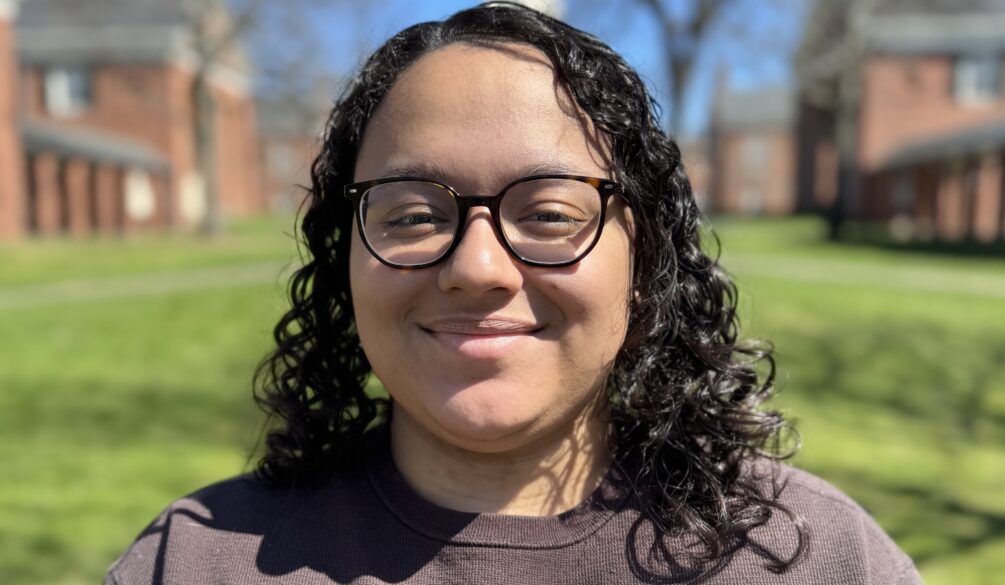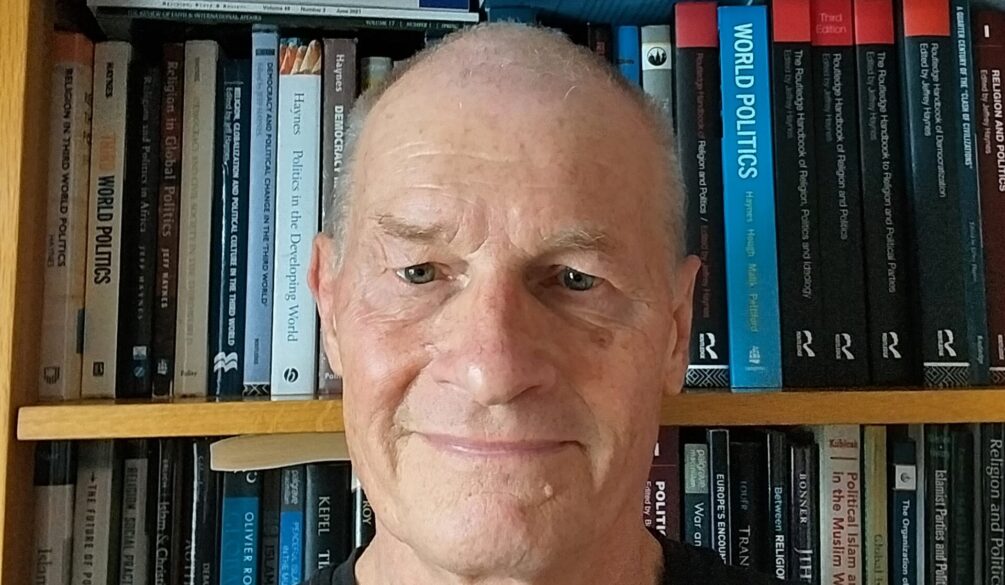2026
AASR Researcher of the Month-Dr Claire P. Ayelotan
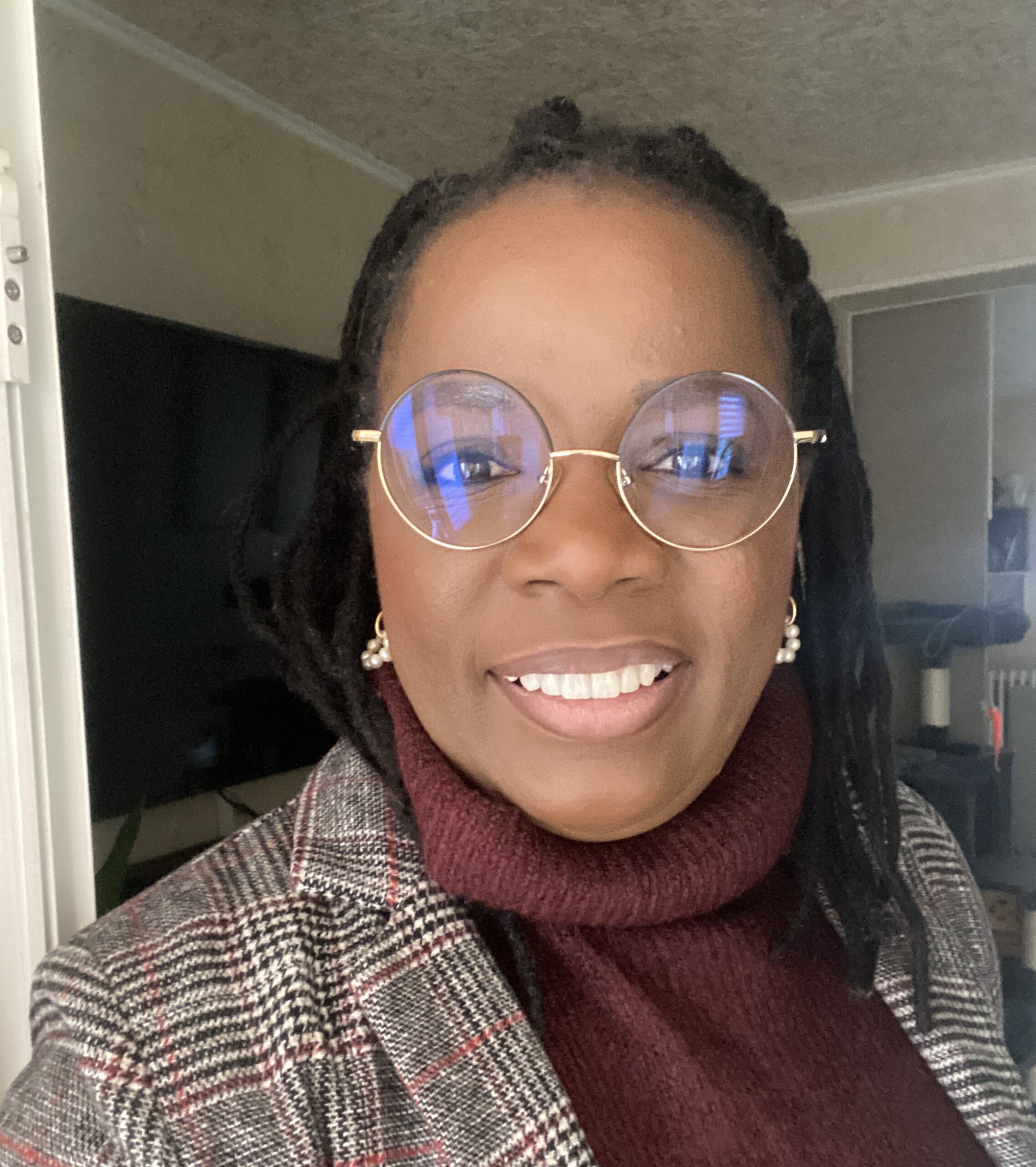
In her own words, on the impact of AASR on her career:
“AASR has been a collegial scholarly community that has provided an intellectual home in which rigorous work on religion in Africa can be shared, tested, and strengthened. Its conferences and networks facilitate valuable interdisciplinary exchange, and they make it possible to build collaborations across regions and career stages.”
1. Tell us about yourself; your academic background and research interests.
I am Dr Claire P. Ayelotan, a scholar of Theology and Religious Studies with training in law. My work sits at the intersection of religion, ethics, and socio-legal analysis, with a focus on belief-linked harm and the ways religious narratives shape social life, moral judgement, and vulnerability. I also examine how accusation logics extend to nonhuman animals—companion animals and livestock alike—when creatures are framed as spiritual agents, ‘familiars’, or ritual instruments, and how this moral reasoning can normalise cruelty and social indifference. My scholarship is intentionally interdisciplinary: there is no single discipline adequate for studying witchcraft accusations and related harm. I therefore draw on theology and religious studies alongside socio-legal analysis, qualitative sociology/anthropology, ethics, and safeguarding frameworks. While my early research centred on children and child protection, my current work also examines gendered vulnerability across the life course, including women and older persons. I am particularly interested in how Pentecostal and wider Christian publics interpret misfortune, spiritual danger, and responsibility—and how those interpretations can either protect people or place them at risk. My broader research interests include safeguarding, gendered violence, social justice, and the ethical and practical questions raised when accusations (especially witchcraft accusations) are weaponised in family and community conflicts.
2. Tell us a little bit more about your recently published book.
My recently published book, Yoruba Pentecostalism and Child Witchcraft Accusations (University of Rochester Press, 2025), https://boydellandbrewer.com/book/yoruba-pentecostalism-and-child-witchcraft-accusations-9781648251238/ examines h ow accusations against children emerge, travel, and gain credibility within certain Pentecostal and wider social contexts. The book traces the narratives, rituals, and institutional dynamics that shape the process of accusation-making, as well as the consequences for children and families. It pays close attention to the moral worlds in which people live: what fear does, how spiritual language is used, and how “deliverance” practices can become entangled with stigma, violence, and exclusion. While the subject matter is painful, the book is ultimately concerned with protection—how communities can move from suspicion and harm toward safeguarding and ethical responsibility.
3. In what ways do you think your research addresses pressing societal challenges?
My research addresses urgent challenges at the level of human dignity and everyday safety. Belief-linked accusations often target those with the least power—children, widows, older women, people living with disabilities, and families under economic strain. My work keeps children at the centre—because accusations often begin there—but it also traces how the same moral panics and accusation logics extend to women and other vulnerable people in contexts of crisis, uncertainty, and inequality. This extends beyond human targets: when animals are imagined as carriers of witchcraft or tools of ritual power, harm is displaced onto them (and sometimes justified), revealing how fear can reorganise ethical responsibility across both human and nonhuman life. When an accusation “sticks,” it can lead to ostracism, dispossession, violence, or death. These are not abstract questions: they concern lives that should have been lived fully, and futures that have been cut short. By analysing how accusations are produced and legitimised, my work contributes to safeguarding practice, public awareness, and policy conversations around protection, justice, and accountability. It also speaks to the Sustainable Development Goals—especially SDG 16—by engaging questions of violence prevention, access to justice, and inclusive societies.
4. How do you see your career/research developing and evolving in the near future?
In the near future, I intend to expand my work in three directions through an explicitly interdisciplinary lens that connects religious narratives, social practice, and legal/rights-based responses. First, I will deepen my research on gendered harm—especially the links between witchcraft accusations, property struggles, and violence against women. Second, I will develop comparative and transnational work that considers how these dynamics travel across African and diaspora contexts through media, migration, and religious networks. Third, I will continue to strengthen the applied dimension of my scholarship by contributing to safeguarding training, interdisciplinary partnerships, and public-facing writing that support practitioners, faith communities, and policy stakeholders.
5. From your wealth of experience, what advice would you give to your younger self?
I would tell my younger self: do not confuse endurance with calling. Protect your time, your health, and your boundaries—because sustainable scholarship requires a sustainable life. Seek mentors early—especially honest mentors—and build collaborations with genuine, principled people who respect your work, and let evidence—not noise—guide your confidence. Do not take your participants/interviewees for granted; protect them. Most importantly, never lose sight of the human beings behind the research questions. The people we write about are not ‘cases’; they are lives with dignity, histories, and futures.
6. What role has the AASR played in your career growth?
AASR has been a collegial scholarly community that has provided an intellectual home in which rigorous work on religion in Africa can be shared, tested, and strengthened. Its conferences and networks facilitate valuable interdisciplinary exchange, and they make it possible to build collaborations across regions and career stages. For scholars working on sensitive topics, that collegial space matters: it reminds us that careful, ethical scholarship is a collective responsibility, not an individual burden.
7. Tell us the challenge(s) you encountered in your career and how you surmounted them. What lessons did you learn?
One recurring challenge has been researching issues that are emotionally demanding and publicly misunderstood. Interdisciplinary work can also be difficult to “place” institutionally, so I have had to learn how to translate my contribution across fields without softening the ethical stakes.
Work on witchcraft accusations and belief-linked harm attracts peculiar pressures: sensationalism when the topic is treated as entertainment; denial when it is treated as an embarrassment; and defensiveness when it is treated as an accusation against “culture” or “religion.” I have had direct confrontations with senior scholars—often of African background—who question why I would “waste” scholarly attention on witchcraft. In everyday academic life, the same logic appears in plain speech: colleagues express their fear of witchcraft as a matter of fact, and some have even asked me why, as an African, I keep cats as pets—as though that alone should settle the argument.
These experiences have taught me that the persistence of witchcraft accusations is not simply a problem of ignorance. It is also a problem of mindset—individual and collective—about how misfortune is explained, how suspicion is normalised, and how certain bodies (children, widows, older women, people living with disabilities) are made available for blame. This is precisely why Symbolic Interactionism remains a primary tool in my work: it helps explain how meanings are produced, repeated, authorised, and then weaponised—until an accusation feels “true” enough to justify ostracism, dispossession, violence, or death.
They have also forced a hard question about ‘education.’ Many of the people who circulate and legitimise these accusations—inside and outside religious settings—are highly educated. This exposes a painful gap: education does not automatically produce ethical judgment, critical reflexivity, or commitment to safeguarding. It is one thing to be educated; it is another to be morally aligned and practically attuned to harm prevention, especially when the vulnerable are at risk.
I have surmounted these challenges by refusing both cynicism and naïveté: grounding my work in careful method, strong ethics, and interdisciplinary dialogue, while holding a firm line on accountability. The central lesson I have learned is simple: clarity is a form of care. When we name harm truthfully, we create space for protection and repair—and for societies in which the most vulnerable can live the lives they were meant to live, rather than having those lives shortened by fear dressed up as certainty.
2025
AASR Scholar of the Month- Dr. Tshenolo Madigele
“AASR has been instrumental in shaping my scholarly identity. Through its conferences, peer networks, and editorial opportunities, I’ve found a platform to share my work and engage with diverse perspectives”. These are the words of Dr. Madigele, our AASR Researcher of the Month. Read the full interview below.
2025
AASR Scholar of the Month
This month, we are pleased to feature B Laboy as the AASR Scholar of the Month, acknowledging their emerging contributions to the field as an early-career scholar. The interview below offers insights into their research and scholarly trajectory.
Tell us about yourself, your academic background and research interests.
I am B Laboy. I am a child of a Mexican immigrant mother and a Puerto Rican father. I was born and raised in Chicago, USA, as a Christian pastor’s kid. Religion has been a part of my life for as long as I can remember. I am a spouse and pet parent of 4. As an undergraduate, I studied religion and psychology, graduating in 2023. I am a Master of Arts in Religion student at Yale Divinity School, Yale University in New Haven, USA. My concentration is in World Christianity. I am ending my second year and will be entering my extended third year in the fall and applying for Ph.D programs for the following year. My research interests are primarily in Latine and African Diaspora Religions. Particularly, I am interested in how these religious communities contend with death, dying, mourning, continuations with the dead, and all things possibly related to death. At my current institution, I am an intern at Yale’s Beinecke Rare Book and Manuscript Library, which has reinforced my love of the archives. Next year, I will intern at Yale Peabody Museum, working with their anthropology collections, doing research, curation, exhibition, and more! I plan to work in settings like this at an academic institution and possibly teach part-time.
- Give us insight into your current research project(s).
I am currently working on three research projects. One is my thesis, where I am doing comparative work on Curanderismo, a Mexican healing tradition, and Santeria, an African Diaspora Religion. I am discussing and comparing how they view, approach, and attempt healing and how their communities make sense of illness and subsequent healing. Another research project concerns death meditations and rituals of various African Diaspora Religions in the Caribbean. I am writing about their various cosmologies around death and comparing them to an Indigenous Amazonian society. My final project is about Christian nationalism in Puerto Rico. The paper aims to wrestle with and answer questions about Puerto Rican colonization, politics, religion, and decolonial theology.
- In what ways do you think your research addresses pressing societal
challenges?
My research is a pushback against mainstream religious studies and religious discourse. I am interested in expanding the definitions of religion. I am interested in centering decolonial thinking and indigenous epistemologies. Overall, I see my work as uplifting marginalized voices and experiences.
- How do you see your career/research develop and evolve in the near future?
Being so early in my own research and career, I am open to whatever ways I and it evolve. I plan to stay in academic institutions and see my research expanding into other literary areas. While my research projects are strictly academic-related, I am interested in combining my passion for creative writing with my academic interests, whether through fiction, poetry, or something else.
- From your experience, what advice would you give to younger scholars?
I am still early in my career and a young scholar. What would I have said to my undergraduate self, or even myself, a year ago? Leap. You can do hard things and be open to whatever changes may stir you to operate differently. Go to those conferences. Email those you are interested in working with academically. Take every opportunity you can while you can. You will never have the freedom and space to explore more than you do right now. And yes, school is undoubtedly vital, but make time for your passions outside of the classroom. You are best when you exist holistically and bring all of yourself into what you do and say.
- What role do you see the AASR playing in your career trajectory?
As a recent member, joining only in the last year, I have not had the opportunity to engage with this community in person. However, I have deeply enjoyed reading and seeing what this community is doing. I am excited about how this community will shape me and impact my career and life.
- Tell us some of the challenge(s) you encountered in your career and how you
surmounted them. What lessons did you learn?
The biggest challenge in my career thus far has been navigating the academic world as a first-generation college student, graduate, and person of color. I have witnessed how these institutions are not made for people who look and act like me. I have seen opportunities pass me by because I simply never knew they could exist for me. I have begun to overcome these challenges through my community of mentors who have been in my shoes before and are helping chart the way ahead of me. Their wisdom, encouragement, and lives themselves bring me hope. Finding a community that understands who I am, where I come from, and where I aim to go is rare, and I have started to find those people. I would not be where I am today without them and my family. I am a product of them and forever indebted to their belief in me. This community is another part of that network for me now; thank you!
2025
Researcher of the Month: Dr. Fidelis Olokunboro
Introducing the AASR Researcher of the Month: Fidelis Olokunboro
Fidelis Olokunboro hails from Nigeria, where he completed his priestly formation and earned his Bachelor’s degree in Philosophy from the University of Ibadan. His academic journey continued with a second Bachelor’s degree in Theology from the Urban Pontifical University in Rome. Pursuing his passion for religious studies further, he moved to the United States for a Master’s degree in Religion and Religious Education at Fordham University, New York. Driven by a quest for deeper understanding, he completed his doctoral studies in theology at the University of Notre Dame, Indiana.
Currently, Fidelis serves as a Visiting Assistant Professor of Theology and Religious Studies at Villanova University, Pennsylvania. His research interests converge at the intersection of Global Religion and Christianity, focusing notably on African religions, Western Catholicism, and philosophical theology. His scholarly pursuits extend to exploring Christian existentialism within African and Western intellectual traditions, as well as delving into Moral Theology with a particular emphasis on social ethics and political theology in Africa. Below is our interview with Dr. Olokunboro
Tell us a little bit more about your recently published work.
I have published several articles and a book chapter, with another book chapter forthcoming this year. Two of my most recent articles are especially relevant to the African context.
In “Beyond Marxist Framework: Understanding and Recovering the Method, the Theology of Daily Life in Jean-Marc Ela’s African (Black) Theology,” published in the Journal of Religion and Theology, I examine a distinctive African contribution to global Christianity. The article explores the theology and methodology of Jean-Marc Ela, emphasizing the originality of his “shade tree theology.” I assess some of Ela’s more radical positions, distancing his thought from Marxist extremism, and reframe his ideas as a model of African theology that centers the voices, wisdom, and lived realities of marginalized communities.
In “The Crucified People: The Divinized African State and the De-Divinized African People,” published in the International Journal of Public Theology, I argue for the centrality of economic and anthropological categories in African political theology. The article investigates the divinization of the African state as a root cause of systemic poverty, interpreting poverty as a form of de-subjectivation of the African people. I propose a theo-anthropological framework as a model for theo-political public reflection in Africa—one that seeks to de-divinize the state while rehumanizing and re-subjectifying the African person.
In what ways do you think your research addresses pressing societal challenges?
My research is interested in framework thinking. It helps to put into perspective and also lay out the grounds and the ideological/intellectual history of African poverty and socio-political issues. I do this by investigating and highlighting the metaphysical and theological grounds of these issues. My conviction is that socio-political issues are not merely social or material, without theological or metaphysical grounds. As such, it is imperative to discover their theological grounds in order to deconstruct them, which helps to address societal issues diagnostically rather than symptomatically.
How do you see your career/research develop and evolve in the near future?
In addition to my research and planned book publication on African political theology, I intend to, at some point, bring the attention of global Christianity to the wealth and insights of African mysticism found in African arts and poetry. I view mysticism as the ultimate culmination of religious practices, particularly in Christianity. Considering that African religions, in their arts and poetry, have invested a great deal in mystic experiences, I am convinced that there are patterns and methods in those African religious arts and poetry that African Christianity can adapt, domesticate, and Christianize for the spiritual growth of Africans and the world beyond Africa. I have an upcoming book chapter on this issue.
What inspired you to join the AASR, and what do you hope to gain from the association?
I just joined AASR. Nonetheless, I am sure its platform will provide me with a great networking opportunity with other African scholars. I am also confident that it will provide an opportunity to contribute to the development of Africa and the diasporic Africans.
From your wealth of experience, what advice would you give to your younger self?
I would encourage my younger self to start early in networking with scholars, participating and presenting at conferences. Additionally, to establish a publishing schedule and footprints as early as graduate school years.
Tell us the challenge(s) you encountered in your career and how you surmounted them. What lessons did you learn?
As an early-career African scholar, the greatest challenge was not learning the publication process early on. I surmounted it by learning from my mistakes and consulting with experienced scholars.
2025
For our Researcher of the Month feature, we spoke with new AASR member Dr. Jeffrey Haynes about his long academic journey. Below is the conversation.
- Please tell us about your academic journey and the areas you focus on in your research.
Dr Jeffrey Haynes is emeritus professor of politics at London Metropolitan University, UK. His areas of expertise are religion and international relations, religion and politics, democracy and democratisation. He is co-editor-in-chief of Democratization, a Q1 comparative politics journal published eight times a year by Taylor & Francis and series editor of a book series for Routledge, Routledge Studies in Religion and Politics, which has published 54 books since the series began in 2011.Jeffrey Haynes is the author or editor of 65 books, most recently: The Routledge Handbook of Religion & Nationalism (ed.), Routledge, 2025; Christian Nationalism and Democracy in Ghana, Routledge, 2025; Religion & Politics: The Basics, Routledge, 2025; Ghana: 50 Years of Political Change, Digibooks, 2025; The Routledge Handbook of Politics and Religion in Contemporary America (ed.), Routledge, 2025; The Routledge Handbook of Religion and Politics (3rd ed.), Routledge, 2023; and Revolution and Democracy in Ghana: The Politics of Jerry John Rawlings, Routledge, 2023
- Tell us a little bit more about your recently published work.
After many years focusing on other topics, in 2022 I began researching into the issue of Christian nationalism and democracy in Ghana, a country about which I wrote my PhD many years ago, in 1988, with the title: [Jerry] Rawlings and the Politics of Development Policy in Ghana, 1979-86. My just-published research monograph, Christian Nationalism and Democracy in Ghana (Routledge, 2025) investigates the impact of Christian nationalism on democracy in Ghana, arguing that proponents of a specific Christian worldview seek to remake the country according to their values and beliefs.
Christian nationalism is a significant religious and political ideology in several African countries, not only Ghana, but also, among others, Zambia and Nigeria. In Ghana, prominent Christian nationalists, encouraged by sections of the American Christian Right, cultivate political influence with powerful political elites and by developing a high media profile to promote their views and increase their numbers of followers. The book examines specific examples of Christian nationalism’s impact on Ghana’s democracy: the national cathedral as a symbol of national unity and social cohesion, anti-Muslim pronouncements threatening inter-faith harmony, and attacks on Ghana’s LGBTQ+ community. Overall, the book argues that Christian nationalism is a specific threat to Ghana’s three decade-long liberal democracy, with the aim of undermining the constitutional equality and human rights of some Ghanaians in favour of a specific Christian worldview.
The main argument of the book is that in Ghana Christian nationalism has significant political influence, impacting on the country’s liberal democracy, human rights, and inter-faith relations. The objective of the book is to identify and examine Christian nationalism’s political and religious significance and assess its impact in one of Africa’s few consistent liberal democracies, a status Ghana has enjoyed for more than three decades, following the return to democracy in 1992 after a decade of undemocratic military-based rule.
- In what ways do you think your research addresses pressing societal challenges?
My current research addresses a pressing societal challenge, not only in Ghana, but more generally in sub-Saharan Africa, that is, how to co-exist in a religiously plural country buffeted by the ups and downs of globalisation.
Ghana is a religiously plural country, one of sub-Saharan Africa’s few liberal democracies. Ghana has been a liberal democracy since the early 1990s, following a decade of military-based rule. The current (1992) constitution, proclaims religious freedom in Ghana, with no religion officially favoured. There is considerable overlap between religious and other spheres of life in Ghana, and many religious actors are politically active.
Ghana is a Christian-majority country. The most recent census, in 2021, reported that 71.3% of Ghanaians are Christian. Muslims comprise 19.9% of the population, and followers of African Traditional Religions (ATRs) amount to just under 5%. Both Christianity and Islam have seen significant demographic growth in recent decades.
Many African countries have seen a strong advance of Pentecostal-Charismatic churches in recent decades. Although there is huge variety among these churches, what they have in common is the desire to be publicly influential. They seek to change the norms and values of their societies to fit more clearly into their religious framework. The key societal challenge they pose is: how can a diversity of views be accommodated in religiously plural countries in sub-Saharan Africa?
- How do you see your career/research develop and evolve in the near future?
I am emeritus professor, having retired slightly early in 2017. This freed me up to pursue research, to write and to publish. I am currently researching/writing a research monograph with the working title, Pentecostalisation, Politics and Development in Ghana, which will be completed a year from now, in June 2026. I am about to sign a contract for the book with a UK-based publisher in a suitable book series.
- From your wealth of experience, what advice would you give to your younger self?
Don’t give up. Set goals and stick to them. Don’t be put off by short term failure or obstacles. Regarding research, follow your heart not your head. That is, pursue research which interests you – not that which might win you hefty research grants but is not fulfilling.
- What role has the AASR played in your career growth?
I am a newcomer to AASR, turning to the study of religion and politics in sub-Saharan Africa after many years writing about politics and political development in Ghana, as well as religion and international relations, and democracy and development in the global south, including sub-Saharan Africa.
AASR is a focus of my research interests and I hope soon to publish in the AASR flagship journal,Utambuzi: Journal for the Study of the Religions of Africa and its Diaspora.
- Tell us the challenge(s) you encountered in your career and how you surmounted them. What lessons did you learn?
As I rose through the ranks at London Metropolitan University, from senior lecturer (associate professor) to reader (associate research professor) to full professor, I learned that managers may say they value research but at the same time they expect senior members of staff also to be managers, administrators, attend lots of committee meetings, teach – and write ‘ground-breaking’ research articles and monographs. I ended up as Dean for Research in a large faculty of around 200 people. I spent most of my time ‘managing’ colleagues – an interesting but fraught job – with many asking for more research time and less teaching! The biggest challenge for me was to maintain a ‘healthy’ research schedule and output while spending 80%+ plus of my time in management, attending committee meetings, administration and teaching.
Regarding lesson learned, I’ll repeat what I wrote for question 5: Don’t give up. Set goals and stick to them. Don’t be put off by short term failure or obstacles. Regarding research, follow your heart not your head. That is, pursue research which interests you – not that which might win you hefty research grants but is not fulfilling.
Recent photograph: attached.
